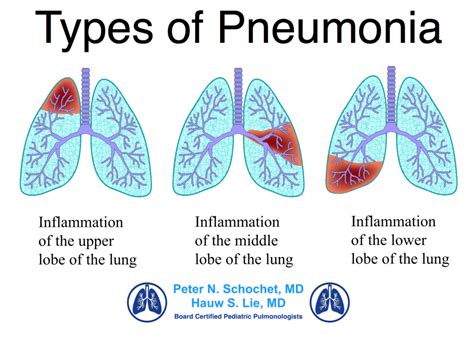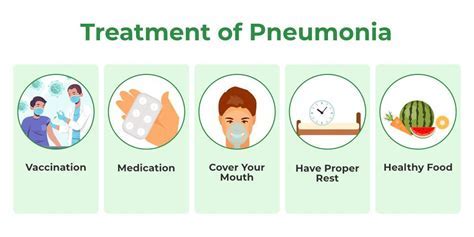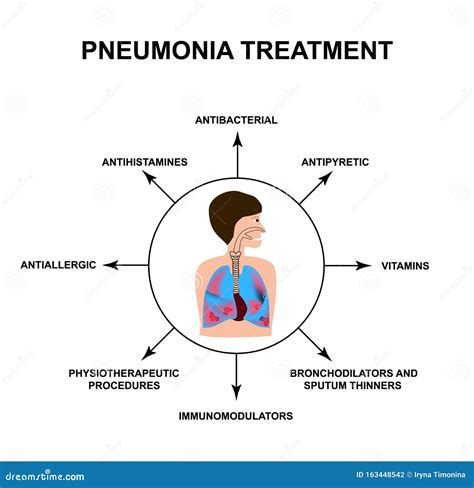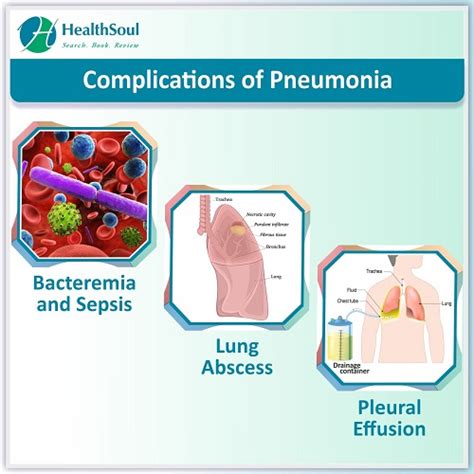Intro
Discover pneumonia duration and recovery time. Learn about symptoms, treatment, and factors affecting recovery, including severity, age, and underlying health conditions, to manage and prevent complications.
Pneumonia is a serious and potentially life-threatening infection that affects the lungs, causing inflammation and fluid buildup in the air sacs. It can be caused by a variety of factors, including bacteria, viruses, and fungi, and can affect people of all ages. One of the most common questions people have when they or a loved one is diagnosed with pneumonia is how long it will take to recover. The duration of pneumonia and the recovery time can vary significantly depending on several factors, including the severity of the infection, the type of pneumonia, and the overall health of the individual.
The severity of pneumonia can range from mild to severe, and the recovery time can vary accordingly. Mild cases of pneumonia may only require a few days of rest and treatment with antibiotics, while more severe cases can require hospitalization and several weeks of recovery time. In some cases, pneumonia can be a recurring condition, and individuals may experience repeated episodes of infection. Understanding the factors that affect the duration and recovery time of pneumonia is essential for managing the condition and preventing complications.
The type of pneumonia also plays a significant role in determining the duration and recovery time. For example, bacterial pneumonia, which is caused by bacteria such as Streptococcus pneumoniae, can be treated with antibiotics and typically has a shorter recovery time than viral pneumonia, which can take longer to recover from. Fungal pneumonia, which is caused by fungi such as Pneumocystis jirovecii, can be more challenging to treat and may require longer recovery times. Understanding the type of pneumonia and its causes is essential for developing an effective treatment plan and predicting the recovery time.
Pneumonia Types And Recovery Time

Bacterial Pneumonia Recovery Time
Bacterial pneumonia is typically treated with antibiotics, and the recovery time can vary depending on the severity of the infection and the type of bacteria causing the infection. Mild cases of bacterial pneumonia may only require a few days of treatment with antibiotics, while more severe cases can require several weeks of treatment and recovery time. In some cases, bacterial pneumonia can lead to complications, such as sepsis and meningitis, which can significantly increase the recovery time.Viral Pneumonia Recovery Time
Viral pneumonia, which is caused by viruses such as influenza and respiratory syncytial virus, can be more challenging to treat and may require longer recovery times. There are no specific treatments for viral pneumonia, and treatment typically focuses on relieving symptoms and supporting the body's natural defenses. The recovery time for viral pneumonia can vary depending on the severity of the infection and the overall health of the individual. In some cases, viral pneumonia can lead to complications, such as bronchitis and sinusitis, which can significantly increase the recovery time.Pneumonia Symptoms And Diagnosis

Pneumonia Symptoms
The symptoms of pneumonia can vary depending on the severity of the infection and the type of pneumonia. Common symptoms of pneumonia include: * Cough * Fever * Chills * Shortness of breath * Chest pain * Confusion * Difficulty breathing In some cases, pneumonia can cause more severe symptoms, such as sepsis and meningitis, which can significantly increase the recovery time.Pneumonia Diagnosis
Diagnosing pneumonia typically involves a physical examination, medical history, and diagnostic tests, such as chest X-rays and blood tests. The diagnosis of pneumonia can be confirmed by: * Chest X-rays: Which can show the presence of fluid in the lungs and the extent of the infection. * Blood tests: Which can show the presence of bacteria or viruses in the blood and the severity of the infection. * Sputum tests: Which can show the presence of bacteria or viruses in the sputum and the severity of the infection. Understanding the diagnosis of pneumonia is essential for developing an effective treatment plan and predicting the recovery time.Pneumonia Treatment And Management

Pneumonia Medications
Pneumonia can be treated with a range of medications, including: * Antibiotics: Which can be used to treat bacterial pneumonia and prevent complications. * Antivirals: Which can be used to treat viral pneumonia and prevent complications. * Cough medications: Which can be used to relieve cough and other symptoms. * Pain medications: Which can be used to relieve chest pain and other symptoms. In some cases, pneumonia can require hospitalization and more intensive treatment, such as oxygen therapy and mechanical ventilation.Pneumonia Therapy
Pneumonia can also be treated with a range of therapies, including: * Oxygen therapy: Which can be used to increase oxygen levels in the blood and support the body's natural defenses. * Respiratory therapy: Which can be used to improve lung function and prevent complications. * Physical therapy: Which can be used to improve mobility and prevent complications. Understanding the treatment and management of pneumonia is essential for developing an effective treatment plan and predicting the recovery time.Pneumonia Complications And Prevention

Pneumonia Complications
Pneumonia can lead to a range of complications, including: * Sepsis: Which can occur when the infection spreads to the bloodstream and causes a severe inflammatory response. * Meningitis: Which can occur when the infection spreads to the meninges and causes inflammation. * Respiratory failure: Which can occur when the lungs are unable to oxygenate the blood and support the body's natural defenses. Understanding the complications of pneumonia is essential for developing an effective treatment plan and preventing complications.Pneumonia Prevention
Preventing pneumonia typically involves: * Practicing good hygiene: Such as washing hands regularly and avoiding close contact with individuals who have pneumonia. * Getting vaccinated: Such as getting the flu vaccine and the pneumococcal vaccine. * Avoiding close contact: With individuals who have pneumonia and avoiding sharing personal items. Understanding the prevention of pneumonia is essential for reducing the risk of infection and preventing complications.What is the typical recovery time for pneumonia?
+The typical recovery time for pneumonia can vary depending on the severity of the infection and the type of pneumonia. Mild cases of pneumonia may only require a few days of rest and treatment with antibiotics, while more severe cases can require several weeks of recovery time.
What are the most common symptoms of pneumonia?
+The most common symptoms of pneumonia include cough, fever, chills, and shortness of breath. In some cases, pneumonia can cause more severe symptoms, such as chest pain, confusion, and difficulty breathing.
How can I prevent pneumonia?
+Preventing pneumonia typically involves practicing good hygiene, getting vaccinated, and avoiding close contact with individuals who have pneumonia. It is also essential to avoid sharing personal items and to get plenty of rest and nutrition to support the body's natural defenses.
We hope this article has provided you with a comprehensive understanding of pneumonia duration and recovery time. If you have any further questions or concerns, please do not hesitate to comment below. Share this article with your friends and family to help raise awareness about pneumonia and its prevention. Take action today to protect yourself and your loved ones from this serious and potentially life-threatening infection.
